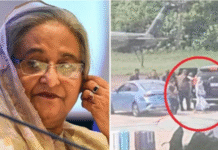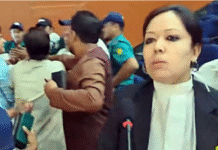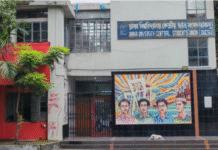
More than 320 people have been unlawfully detained or have disappeared in Bangladesh since Prime Minister Sheikh Hasina’s Awami League party took office eight years ago, according to Odhikar, a Dhaka-based human rights group. Plucked from their homes or off the streets by plainclothes members of Bangladesh’s rapid action battalion or the detective bureau of the Dhaka police, the victims increasingly include members of the political opposition, as well as suspected criminals and Islamist militants.
Among the 90 people who disappeared last year, according to Odhikar, of which 21 were killed and nine remain missing, was Mir Ahmad Bin Quasem, a lawyer for the opposition Jamaat-e-Islami political party. The men who took Mr. Quasem from his home in August, as his wife, sister and two young daughters watched, refused to identify themselves. Mr. Quasem has not been seen since.
Alarmed by these practices, the United Nations called in February for “Bangladesh to act now to halt an increasing number of enforced disappearances in the country.” But the pace of disappearances only appears to be quickening.
Ms. Hasina’s government has responded by denouncing its accusers, making a mockery of international and Bangladeshi law when faith in democratic institutions is crucial for the nation’s struggle to counter terrorism.
When Human Rights Watch published a meticulously documented report this month on the disappearances, Home Minister Asaduzzaman Khan responded with sneering contempt, “This organization had launched a smear campaign against us.”
Mr. Khan further disparaged the report, and legitimate alarm about government thuggery, by falsely claiming the United Nations had expressed no similar concerns.
If Mr. Khan respects the United Nations, his government should invite the organization’s human rights chief, Zeid Ra’ad al-Hussein, to conduct an investigation. Only then can the government face honestly its people, world opinion and the truth.
Source: NY Times









